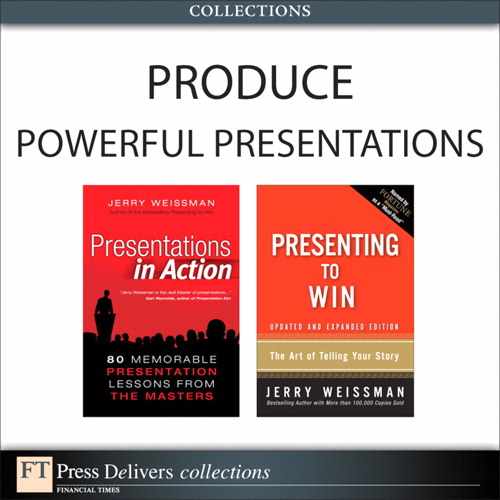22. Presentation Advice from a Politician: Audience Advocacy
Karl Rove, who served as Senior Advisor to President George W. Bush during 2000–2007 and Deputy Chief of Staff during 2004–2007, was widely known as “The Architect” because he was considered to be the power behind the throne of the 43rd president. After he left office, Mr. Rove wrote his autobiography, Courage and Consequence: My Life as a Conservative in the Fight, in which he offered political advice analogous to presentations.
The advice was called out in a review of the book in the New York Times written by Mark Halperin. As the editor-at-large and senior political analyst for Time magazine, and coauthor with John Heilemann of the bestselling Game Change: Obama and the Clintons, McCain and Palin, and the Race of a Lifetime, Mr. Halperin understands the essentials of communication. He wrote:
Students of practical politics should grab a highlighter and some Post-it notes when reading Chapter 4, entitled “What Is a Rovian Campaign?” Even if one disagrees with Rove’s politics (especially if one disagrees with Rove’s politics), there are some valuable nuggets about how to run winning campaigns. The most vital rule, Rove says, is often violated: “A campaign must first be centered on big ideas that reflect the candidate’s philosophy and views and that are perceived by voters as important and relevant.”F22.1
Replace the word voters with the word audience, and you have sage advice for presentations. This is a further extension of Audience Advocacy, the concept from the prior chapter that asks presenters to advocate the audience’s point of view in equal measure to their own.
In Mr. Rove’s book, he also took the opportunity—as he often does in his other writing and public appearances—to attack President Barack Obama. There is no love lost between the president and one of his most constant critics, but in politics, all is fair game. Mr. Obama heeded Mr. Rove’s advice about the importance of being “centered” on voters.
During an interview in the New York Times about his low job approval ratings, Mr. Obama admitted, “What I have not done as well as I would have liked to is to consistently communicate to the general public why we’re making some of the decisions.”F22.2
Turning to the same “Rovian” nugget that Mr. Halperin highlighted, the president added, “One of the things we’ve been trying to do is to say, ‘Boy, let’s get out of here more often.’ Just talk to folks and listen to folks so that people get a better sense—not just that we’re making smart decisions, but that we’re also hearing them and their voices and what they’re going through on a day-to-day basis.”
Apparently, Barack Obama was also heeding Michael Corleone’s advice in The Godfather, Part II, when he said, “Keep your friends close, but your enemies closer.”
Coda: Concurrent with the release of Mr. Rove’s book, I was working with a start-up company (still in stealth mode and, therefore, anonymous) to develop its financing pitch, and I introduced the Audience Advocacy concept to them. At that point, the company’s CFO smiled and said, “Sounds like the advice I gave to my 13-year-old son who was about to go on his first date. He asked me what he should talk about. I replied, ‘Make it all about her.’”
